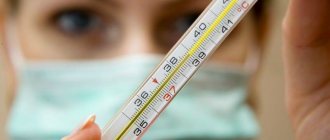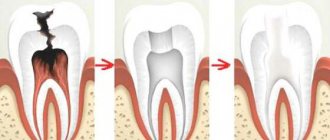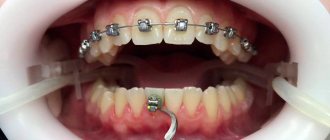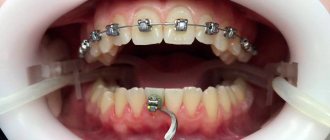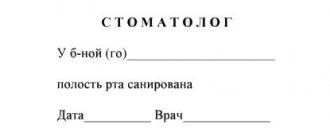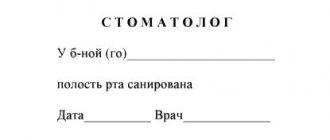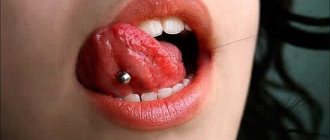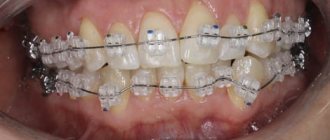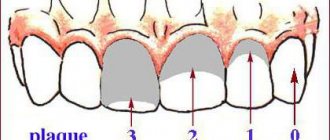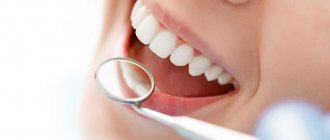Certificate of oral sanitation
is an official document that confirms the patient’s dental health. This certificate is issued by a dentist after a thorough examination of the oral cavity and the sanitization itself.
What is oral sanitation?
Sanitation
is a complex of therapeutic and preventive measures at the dentist. Depending on the condition and health of the teeth, oral sanitation may include:
- Treatment of caries and pulpitis;
- Professional oral hygiene;
- Treatment of periodontal diseases;
- Removal of diseased teeth.
To carry out sanitation, the patient must visit the dentist by appointment, undergo an examination, and obtain a medical report. If the teeth are in order, a certificate is issued immediately; If there are dental diseases, they must be treated first. And only after all the procedures, the dentist gives a certificate of sanitation of the oral cavity - with the seal of the dental clinic or clinic and with the signature of the attending physician. The certificate is always issued in a standard format and is accepted in all medical institutions.
Important:
A certificate of oral hygiene can be obtained from both public and private dentistry. Therefore, if it is urgently needed, it is better not to waste time in queues at a government agency, but to go to a trusted clinic with high-quality medical equipment.
In what cases and why is a certificate from a dentist necessary?
Certificate from the dentist for surgery
If the patient is undergoing a major operation in the near future, a certificate from the dentist is needed among other documents confirming the patient’s health. A dentist's opinion can reduce the number of complications after surgery. Our oral cavity and teeth are connected by blood flow to the entire body, and if a focus of inflammation remains somewhere, this can seriously harm a person already weakened after surgery.
In addition, during the operation itself or during the rehabilitation period, existing dental diseases (caries, pulpitis, periodontitis) can worsen and cause complications. That is why, before a planned operation, it is necessary to treat all teeth at least a month in advance, make sure that nothing threatens the health of the oral cavity, and obtain a certificate, without which the surgical operation will be impossible.
What to expect during a routine dental visit?
A dental examination is a systematic examination during which the doctor carefully evaluates the condition of the oral cavity and maxillofacial area in order to identify caries, periodontal disease, neoplasms and other diseases.
The stages of the examination include assessing:
- Facial area and neck. The doctor will perform a thorough palpation to rule out the presence of enlarged lymph nodes or salivary glands, as well as any suspicious growths such as cysts and tumors. The function of the temporomandibular joint is also assessed.
- Soft tissues of the oral cavity. The tongue, the inner surface of the lips and cheeks, as well as the floor of the mouth and palate are examined. These areas are examined for redness, swelling, damage, and growths. The posterior wall of the pharynx and tonsils are also examined.
- Periodontal (periodontal tissues). The doctor will evaluate the color, surface (relief), shape of the gingival papillae, as well as signs of inflammation or bleeding of the gums. In addition, the oral cavity is checked for the presence of pathologies such as a decrease in the level of the gingival margin, disruption of the periodontal attachment, the presence of periodontal pockets, migration and mobility of teeth.
- Conditions of the dentition. The anatomical shape of the teeth, their color and surface, as well as the dental formula are assessed. The bite and occlusal contacts are checked.
- Dental conditions. The doctor will look for signs of caries, and will also evaluate the condition of existing fillings according to the following criteria: anatomical shape, marginal fit and staining, and the presence of secondary caries. If the patient wears fixed or removable dentures, their current condition and function are checked.
Once the examination is complete, your dentist will discuss the results with you and, if necessary, develop a treatment plan. In addition, the doctor will give recommendations on proper oral care.
Certificate from a dentist for work
A certificate of dental examination is also required when applying for employment in some hazardous industries - for example, in a plant in the metallurgical, textile or chemical industries. Where a person has to work in difficult and hazardous working conditions - at high or low temperatures, with dust and dirt, with chemicals, with biological hazards - a certificate from a dentist is needed to avoid risks.
The body is subjected to heavy stress during such work, and the teeth are among the first to “give up.” That is why in the future, in hazardous work, regular medical examinations are carried out, including by a dentist. In such cases, the oral hygiene certificate will need to be obtained again in order to continue working in this industry.
Certificate from the pediatric dentist for the child
When enrolling a child in a kindergarten or school, a certificate of oral hygiene is also required. Children do not have the same immunity as adults, baby teeth are susceptible to caries, and some dental diseases - for example, stomatitis - are transmitted in small groups of children.
In order to avoid complications, not to infect other children in the group or class, and to be protected from caries, the child must undergo a timely examination by a pediatric dentist, treat all foci of the disease, strengthen and protect the teeth.
Important:
A certificate from a dentist for school or kindergarten is a mandatory document. Many online resources offer to buy a certificate of oral hygiene without examining a doctor - we strongly recommend avoiding such advice. Purchasing a certificate does not guarantee the health and safety of the child.
Certificate from a dentist for pregnant women
A visit to the dentist is one of the mandatory events when planning a pregnancy. Many women complain about dental health during pregnancy and lactation, which is why teeth need to be treated in advance. A certificate of oral cavity sanitation is a necessary document when registering with an obstetrician-gynecologist; the results of an examination by a dentist must be recorded in the medical record.
For the sake of the health of both the patient and the unborn child, it is necessary to promptly eliminate all possible threats to the body, including dental diseases.
There is no need to be nervous and wait for your turn. Doctors from the As-Stom dental clinic network are always ready to see you by appointment at a time convenient for you. Our dentists will conduct an examination and issue a certificate of oral hygiene in an official form, signed and stamped. You can get a certificate from us urgently! Sign up by phone 597-05-05
or using the online application form on the website.
What is oral sanitation?
Full mouth sanitation includes the following procedures:
- examination of the oral cavity;
- removal of dental plaque (pigmented plaque and tartar) - carried out by ultrasonic or abrasive cleaning;
- filling of all carious lesions;
- treatment of detected diseases (pulpitis, periodontitis, etc.);
- elimination of damaged teeth and dental roots that cannot be restored;
- anti-inflammatory therapy of the mucous membrane (for gingivitis, stomatitis, periodontitis);
- in the absence of one or more teeth - prosthetics;
- removal of problematic “eights”;
- if necessary, bite correction.
Types of sanitation:
- individual (one-time) – when the patient applies independently (optional);
- planned (therapeutic and preventive) - carried out for workers of industrial enterprises, as well as in schools and other educational institutions.
Get it yourself or buy it?
A certificate from a dentist is a document confirming that the teeth and gums in the patient’s mouth are in healthy condition and cannot cause any infection. Such a document may be required in a variety of life situations. For example, if it is necessary to go to hospital for any operation or when registering during pregnancy.
Why is it better for pregnant women to buy a certificate from a dentist than to go to an appointment?
The main difficulty in officially obtaining this document is that the doctor will only issue it if the gums and teeth are truly healthy. Otherwise, you will need to undergo treatment first. Some teeth may need to be removed and others need fillings. Naturally, with such a development of events, it will not be possible to obtain a certificate in one day. However, there are situations when it is needed very urgently.
If you recently visited the dentist and are sure that your oral cavity is in perfect order, you can refuse to visit the dentist’s office again. It is enough to buy a certificate from the dentist. This will allow:
- save a lot of effort (despite the abundance of all kinds of dental clinics, there are still long queues, especially in government institutions);
- save yourself from additional unpleasant experiences (there is no doubt that visiting the dentist gives at least a little pleasure to someone);
- in the shortest possible time and without any bureaucratic delays, receive the necessary document for submission to one or another authority.
How is the procedure performed?
Sanitation of the oral cavity is a series of therapeutic and preventive procedures that are aimed at identifying current diseases and eliminating them. In the official interpretation, the concept includes the treatment of caries, elimination of defects, bite correction, ultrasonic or mechanical cleaning of tartar, removal of teeth that cannot be treated, and a number of other dental procedures.
A conclusion on the sanitation of the oral cavity is issued at the dental clinic based on the results of the examination and prescribed treatment. In most cases, just an examination is not enough for a clinic patient - if diseases and defects are identified, they will have to be eliminated, which will entail serious costs. They are not always appropriate and covered within a short period of time. Therefore, the most rational solution is to order a certificate without undergoing a comprehensive examination procedure.
Professional teeth cleaning is the optimal solution before extraction or prosthetics
The presence of foci of inflammation and pathogenic microflora in the oral cavity during surgery or prosthetics is a high risk of complications for the patient, which will not only delay the recovery process, but can also negate all the doctors’ manipulations. That is why you should not neglect professional dental hygiene, which will help get rid of tartar even in the most inaccessible places.
The EURODENT clinic network provides professional teeth cleaning using modern and safe equipment (find out more by following the link). We use:
Ultrasound device “Piezon Master-600” (Switzerland). It allows you to remove plaque and tartar without damaging the enamel thanks to gentle ultrasonic vibration. The cleaning process also restores the natural color of the enamel. Most often used in conjunction with the Air-flow system.
- Air-flow system (Switzerland). Plaque removal occurs under the influence of an aqueous solution of calcium bicarbonate, which is supplied under high pressure. The use of the “Air-flow” system allows you to remove the densest plaque both from the front part of the tooth and from the interdental space, even with crowded teeth. It is an excellent prevention of periodontitis and periodontal disease. Removing pigmented plaque allows you to restore the whiteness of your teeth without damaging the enamel. The cleaning procedure should be carried out 2-3 times, after each session it is necessary to coat the teeth with fluoride-containing preparations.
- Polishing the surface of teeth with abrasive pastes. This is a mandatory step in professional oral hygiene. Even with the most thorough removal of plaque and tartar, the tooth surface remains rough. This contributes to the formation of new dental deposits from microparticles of food and saliva, which over time will again become a source of pathogenic bacteria. Tooth polishing makes the surface of the teeth smooth and even, making it much more difficult for plaque to form. During the polishing process, special grinding attachments of various configurations and abrasive pastes of different grain sizes are used. The polishing procedure allows you to consolidate and preserve for a long time the effect of professional teeth cleaning.
- Device "Vector" (Germany). The principle of operation of the Vector device is based on the use of ultrasonic vibrations directed along the axis of tooth growth (sliding vibrations) and treatment of the tooth surface with a suspension of calcium hydroxyapatite. “Vector” effectively removes subgingival plaque and tartar, which serve as a source of infections, and polishes the tooth root - this allows you to preserve the effect of professional teeth cleaning for a long time.
If you want to maintain the health of your teeth for a long time and avoid complications after installing implants, braces or tooth extraction, be sure to take a course of professional dental hygiene 1-2 times a year. We remind you that the initial consultation with our specialists is free. Also available to patients of the Eurodent clinic.
Based on: 4 votes
How often should you have a dental checkup and why?
Every person needs a preventative dental examination approximately once every six months, even if nothing bothers him.
Dental diseases develop quickly. And the first signs, which can be visually noticeable, appear within 6 months.
A child's dental checkup plan consists of more frequent visits. It is advisable for children to see a doctor once every three months. Thanks to regular dental examinations, caries and other diseases can be detected at an early stage, when gentle, painless methods can be used to treat them.
Prices
Complete sanitation of the oral cavity, as a rule, takes place in several stages (2-3 visits). Average prices for basic procedures:
- ultrasonic teeth cleaning (tartar removal) – from 4,000 rubles;
- abrasive cleaning using the Air Flow method (removing “smoker’s” deposits) – 4,300 rubles;
- tooth filling of the 1st degree of complexity (initial caries) – 2000 rubles;
- filling for deep caries – 2800 rubles;
- treatment of gingivitis/periodontitis (cleaning gum pockets, treatment with medicine) – from 6,500 rubles;
- simple tooth extraction (without cutting the gums) – 1200 rubles;
- complex wisdom tooth removal – about 5,000 rubles.
Already at the first examination, the doctor will draw up an action plan and determine what procedures are necessary in your particular case. If you are looking for dentistry with affordable prices, we recommend using the search engine on our website. She will help you find a clinic near your home or place of work.
How teeth and gums are prepared for extraction, prosthetics or implantation
Like any other operation, tooth extraction, installation of dentures or implants requires careful preparation. Therapeutic preparation of the oral cavity for further manipulations - prosthetics, installation of braces or implantation, includes:
- Initial examination and appointment of all necessary studies (X-ray, CT scan possible, clinical tests, etc.)
- Sanitation of the mouth. At this stage, all foci of inflammation are identified and eliminated, caries and its complications are treated, and the health of the gums and mucous membrane is restored. If necessary, depulpation of abutment teeth can be performed before prosthetics. All manipulations in our clinic are carried out in accordance with international protocols - using sterile disposable instruments and a dental dam to isolate teeth.
- Professional teeth cleaning - removal of subgingival and supragingival stones, followed by polishing and fluoridation.
The last point is no less important than correct diagnosis and treatment of teeth or gums. Because as a result, it is the removal of stone that helps relieve excess inflammation of the gums, reduce bad breath and prevent negative consequences that may interfere with maintaining oral health after any dental procedures.
Sanitation of the child’s oral cavity
Indicated for children of school and preschool age, as well as adolescents. Regular examinations are carried out in kindergartens (from the age of 3), schools, sanatoriums, and boarding schools.
You can also contact a dentist at a children's clinic near your place of residence. If necessary, the doctor will give the child a hyena lesson and show how to use a toothbrush and floss correctly. Children's baby teeth deteriorate faster because their enamel is thin and weak. Therefore, it is recommended to carry out monitoring 2-3 times a year.
Even if your child wears braces, it is still important to make preventive visits and remove accumulated bacterial plaque every 4-6 months.
Why do you need oral sanitation before implantation?
Dental implantation is a complex surgical operation, and the main condition for its success is sterility. Any infection, for example, from a carious lesion can enter the hole and cause an inflammatory process.
To eliminate the risk of infection, the dentist performs a complete sanitation of the mouth. Without this, no one can guarantee you 100% implant success. If you refuse sanitation, and after some time the dental implant falls out (does not heal), then you will have to have a second operation at your own expense.
Sanitation of the oral cavity during pregnancy
It is possible and necessary to sanitize your mouth during pregnancy. Ideally, a woman should undergo comprehensive oral therapy before conceiving a child. However, it is not too late to see a dentist if you have already found out that you are pregnant.
Having an infection in the mouth is a risk for both the expectant mother and the baby. Therefore, all dental diseases must be cured.
During pregnancy, teeth become fragile and quickly deteriorate. The reason for this is calcium deficiency in a woman’s body, hormonal imbalances, changes in the composition of saliva (violation of the acid-base composition).
The safest period for dental treatment for pregnant women is the second trimester, when the risk of drug exposure to the fetus decreases.
